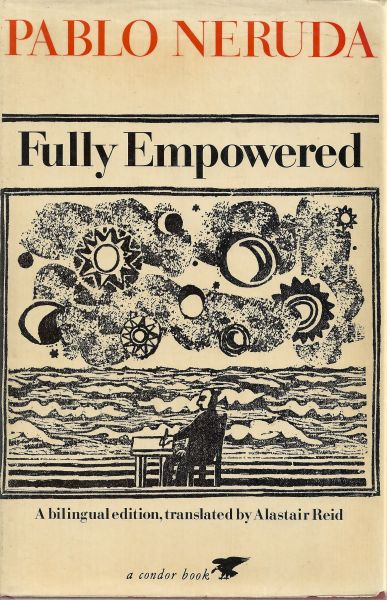Pablo Neruda (/n?ëÔäó?ï?åru?ï?Éd?ëÔäó/;[1] Spanish: [?ï?åpaβ?î?¥lo?î?¥ ne?î?¥?ï?å?ë?¥uð?î?¥a]) was the pen name and, later, legal name of the Chilean poet-diplomat and politician Neftali Ricardo Reyes Basoalto (July 12, 1904 – September 23, 1973). He derived his pen name from the Czech poet Jan Neruda.[2] He won the Nobel Prize for Literaturein 1971.
Neruda became known as a poet while he was still a teenager. He wrote in a variety of styles, including surrealist poems, historical epics, overtly political manifestos, a prose autobiography, and erotically charged love poems such as the ones in his collection Twenty Love Poems and a Song of Despair (1924). He often wrote in green ink, which was his personal symbol for desire and hope.
The Colombian novelist Gabriel García Márquez once called Neruda the greatest poet of the 20th century in any language.”[3] Harold Bloom included Neruda as one of the 26 writers central to the “”Western tradition”” in his book The Western Canon.
On July 15
